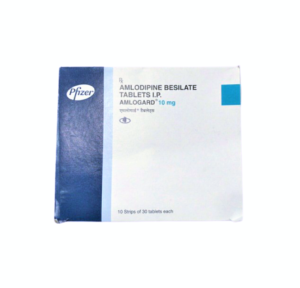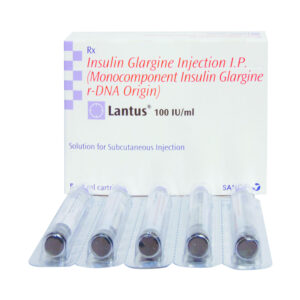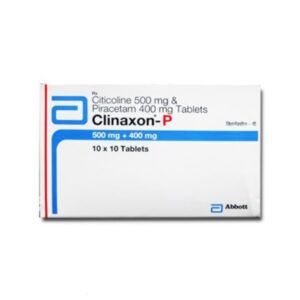What is this drug used for?
• It is used to lower blood sugar in patients with high blood sugar (diabetes).
Frequently reported side effects of this drug
• Common cold symptoms
• Sore throat
• Stuffy nose
Other side effects of this drug: Talk with your doctor right away if you have any of these signs of:
• Low blood sugar like dizziness, headache, fatigue, feeling weak, shaking, fast heartbeat, confusion, increased hunger, or sweating.
• Low potassium like muscle pain or weakness, muscle cramps, or an abnormal heartbeat.
• Shortness of breath
• Excessive weight gain
• Swelling of arms or legs
• Burning or numbness feeling
• Vision changes
• Chills
• Severe dizziness
• Passing out
• Mood changes
• Seizures
• Slurred speech
• Painful urination
• Blood in the urine
• Severe injection site irritation
• Injection site change in skin to thick or thin
• Signs of a significant reaction like wheezing; chest tightness; fever; itching; bad cough; blue skin color; seizures; or swelling of face, lips, tongue, or throat.
Note: This is not a comprehensive list of all side effects. Talk to your doctor if you have questions.
Pronunciation
(IN soo lin AS part)
Medication Safety Issues
Sound-alike/look-alike issues:
NovoLOG may be confused with HumaLOG, HumuLIN R, Nimbex, NovoLIN N, NovoLIN R, NovoLOG Mix 70/30
High alert medication:
The Institute for Safe Medication Practices includes this medication among its list of drugs which have a heightened risk of causing significant patient harm when used in error. Due to the number of insulin preparations, it is essential to identify/clarify the type of insulin to be used.
Geriatric Patients: High-Risk Medication:
Beers Criteria: Insulin (short- or rapid-acting insulin products used for sliding scale), is identified in the Beers Criteria as a potentially inappropriate medication to be avoided in patients 65 years and older (independent of diagnosis or condition) due to higher risk of hypoglycemia associated with sliding scale insulin without improvements in hyperglycemia, regardless of care setting. Avoid insulin regimens that only use short- or rapid-acting insulins dosed based on current blood glucose levels in the absence of basal or long-acting insulin; recommendation does not apply to regimens containing basal or long-acting insulin (Beers Criteria [AGS 2019]).
Generic Availability: US
Yes
Storage and Stability
Fiasp:
Unopened vials, cartridges, and prefilled pens may be stored under refrigeration between 2°C and 8°C (36°F and 46°F) until the expiration date or at room temperature <30°C (<86°F) for 28 days; do not freeze; keep away from heat and sunlight.
Once punctured (in use), vials may be stored under refrigeration or at room temperature <30°C (<86°F); use within 28 days. Opened (in use) Fiasp FlexTouch pens may be stored at room temperatures <30°C (<86°F) or under refrigeration at 2°C to 8°C (36°F to 46°F) and should be used within 28 days. Opened (in use) Fiasp PenFill cartridges may be stored at room temperature <30°C (<86°F) and should be used within 28 days; do not refrigerate.
For continuous subcutaneous insulin infusion: Insulin aspart contained within an external insulin pump reservoir should be replaced at least every 6 days; discard if exposed to temperatures >37°C (>98.6°F).
For IV infusion: Stable in compatible fluid (eg, NS) for 24 hours at room temperature.
NovoLOG:
Unopened vials, cartridges, and prefilled pens may be stored under refrigeration between 2°C and 8°C (36°F and 46°F) until the expiration date or at room temperature <30°C (<86°F) for 28 days; do not freeze; keep away from heat and sunlight.
Once punctured (in use), vials may be stored under refrigeration or at room temperature <30°C (<86°F); use within 28 days. Cartridges and prefilled pens that have been punctured (in use) should be stored at temperatures <30°C (<86°F) and used within 28 days; do not freeze or refrigerate.
For continuous subcutaneous insulin infusion: Insulin aspart contained within an external insulin pump reservoir should be replaced at least every 6 days; discard if exposed to temperatures >37°C (>98.6°F).
Dilution for SubQ administration (vials only): Diluted insulin aspart should be stored at temperatures <30°C (<86°F) and used within 28 days.
For IV infusion: Stable in compatible fluid (eg, NS) for 24 hours at room temperature.
Adverse Reactions
Adverse reactions are reported for adults, unless otherwise noted.
Cardiovascular: Chest pain
Dermatologic: Allergic skin rash, dermatological disorder, onychomycosis
Endocrine & metabolic: Diabetic retinopathy, severe hypoglycemia (adults, children, and adolescents: more common with Type 1), weight gain
Gastrointestinal: Abdominal pain, diarrhea, nausea, vomiting (children and adolescents)
Genitourinary: Urinary tract infection
Hypersensitivity: Hypersensitivity reaction
Immunologic: Antibody development (more common in adults)
Infection: Influenza (children and adolescents)
Local: Erythema at injection site, infusion site reaction, injection site pruritus, injection site reaction (more common in children and adolescents), lipoatrophy at injection site (more common in children and adolescents), swelling at injection site
Nervous system: Abnormal sensory symptoms, headache (more common in adults), hyporeflexia, peripheral neuropathy
Neuromuscular & skeletal: Back pain
Ophthalmic: Error of refraction
Respiratory: Nasopharyngitis, rhinitis (children and adolescents), sinusitis, upper respiratory tract infection (more common in children and adolescents), viral respiratory tract infection (children and adolescents)
Miscellaneous: Accidental injury, fever (children and adolescents)
Rare: Facial edema, peripheral edema
Postmarketing: Amyloidosis (localized cutaneous at injection site), anaphylaxis
–






